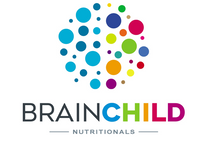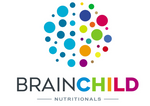Decoding The Most Beneficial Supplements for Autism
Typically, children on the autism spectrum don't absorb nutrients well. This is because their digestive systems are not working very well. Often, they eat a very limited list of foods. B vitamins are particularly important because they are crucial for optimal brain health. Minerals, particularly magnesium, zinc, selenium and trace minerals, can be crucial as well. The body depends on these essential nutrients.
Our brain, immunity, metabolism… in fact the overall body development depends on a proper balance of nutrients. Some parents and teachers report autistic children “waking up” or becoming less brain-fogged when they start taking well-absorbed vitamins and minerals such as ours. This suggests that these kids were literally starving for these nutrients, and may not have been able to absorb and utilize them from diet alone. So what are the best supplements for autism recovery?

So How Does it Work? - Why Can Supplements Help?
The idea is to get enough of what the body needs to absorb well and be utilized as intended, so that the body can slowly start functioning better, and eventually pick up some of the work itself and need less help. Another goal is to help support the gut to perform more effectively, absorbing nutrients better from food and supplements.
Studies have shown that supplements like our Spectrum Support Vitamins for autism can be helpful in restoring a good balance. Autism Spectrum Disorder is defined by the impairment in social interaction, difficulty in communication, repetitive behavior and limited social interests. Children with ASD often have challenging food habits associated with a weakened metabolism and therefore become very picky eaters.
That is why children with autism spectrum disorders who take a daily dose of vitamins for autism have shown great sign of nutritional improvement. Especially when it come to B vitamins intakes. B vitamins are regarded as one of the most crucial vitamins that helps in functioning of healthy nervous system and metabolic processes. Supplementation of multivitamin for autism in combination with ABA therapy and your doctor’s guidance can really improve the quality of life. That being said, supplementation can seem complicated. Understanding what each kind of supplement is supposed to help with, and getting them in place takes some time, planning, and most of all, patience. Here is a quick breakdown of what each one entails:

Vitamin B6
Vitamin B6 is one of the main constituents of any multivitamin for autism supplementation. Taking a suitable dose of vitamin B6 under the guidance of doctor can give positive results. Studies have shown that supplementation of vitamin B6 with magnesium, improves the communication, social interaction and behavior in an autistic individual. It's one of the best autism supplements for speech.

Vitamin B12
Vitamin B12 helps producing and regulating the neurotransmitters, protecting the nerve cells Out of the B12 family, only methyl-B12 has the ability to activate the methionine/homocysteine biochemical pathway directly. It is this pathway that is responsible for the body’s entire sulfur-based detoxification system, and for the formation of S-adenosylmethionine (SAMe) the universal methyl donor. This pathway is also responsible for the formation of homocysteine, the “crossroads” molecule that is responsible either to reform methionine and SAMe or create cysteine, taurine, and glutathione. Glutathione is the body’s primary intracellular antioxidant and is responsible for many detoxification reactions, most notably those that involve the binding and removal of mercury, lead, cadmium, arsenic, nickel, tin, antimony, and many other lesser-known heavy metals that also bind to glutathione’s sulfur group. Children suffering from autism spectrum disorder have shown behavioral improvement after taking B12 vitamin supplement or shots.

Vitamin C
Free radical harms the brain and immune system of a human body. To prevent this damage intake of antioxidants like Vitamin C can be helpful. Studies have shown that taking vitamin C as helps in lowering the stress level. The stress levels are above normal level in autistic individuals. Another research report showed that high doses of vitamin C may help sleep and gastrointestinal problems in children with autism. In this study, vitamin C was taken along with other vitamins, so it’s not clear which vitamin was responsible for the positive outcomes. For most people, vitamin C is thought to be harmless. However, tolerance for vitamin C can vary. Therefore, you should watch your child carefully for signs of an upset stomach or diarrhea. Check with your child’s pediatrician before starting with any supplement.

Vitamin D
Recent studies have shown that vitamin D supplementation helps in reducing the effect autism spectrum disorder. Every cell in the brain has vitamin D receptors. The receptors control gene expression or how genetic material is used. Therefore, vitamin D certainly is involved in brain function. Vitamin D also protects brain tissue by stimulating production of neurotropins, chemicals that combat toxicity from several sources, including toxic levels of intracellular calcium. One of the hallmarks of autism is oxidative stress. This leads to early cell death. Scientific literature reports that vitamin D reduces oxidative stress. Therefore, supplementing vitamin D plays a key role in improving the condition.
What other supplements can also be beneficial?
Fish Oils
Essential Fatty Acids (EFAs) are considered "essential" because they are needed throughout the human life cycle, cannot be produced in the human body, and therefore must be provided through the diet. EFAs help with brain and nerve development, cellular communication, oxygenation, metabolism and immune response. In children on the spectrum, Omega-3 EFAs such as DHA and EPA are particularly important for the brain, the immune system, and to help fight inflammation. Many studies show that EFA supplementation can also help with positive mood and attention. Our favorite is from Nordic Naturals.
Probiotics
A healthy digestive system contains good flora, which is “good” bacteria that helps with digestive function. If you think of the gut like a garden, the good flora is the plants, worms and helpful insects and the bad flora is weeds and destructive bugs. Probiotics are essentially “seeds” to grow more good flora. Probiotics add good bacteria, and help it to “take root” and grow (colonize), bringing the gut back in balance.
Digestive Enzymes
Our bodies make digestive enzymes to help break down the food we eat. The better food is broken down, the better our bodies can absorb the nutrients in it, and the easier it is for us to get rid of the rest as waste. Kids on the spectrum commonly have low levels of stomach acid and dysfunctional food processing throughout the gut. These children can also have special dietary needs, such as intolerances to proteins such as gluten (in wheat) and casein (in dairy). Dietary enzymes can help break down aggravating proteins and aid digestion. A by-product of better protein digestion is often noted as an improvement in mood and disposition in these children. However, it should be noted that enzymes are not a cure or treatment for any medical condition. Enzymes simply support good digestive function, which can help anyone's mood and disposition!
Spectrum Support Vitamins are effective nutritional supplement for autism
Our Spectrum Support formulas focus on a broad effective nutrition profile that are highly absorbable. Contact us or click here for more information.






